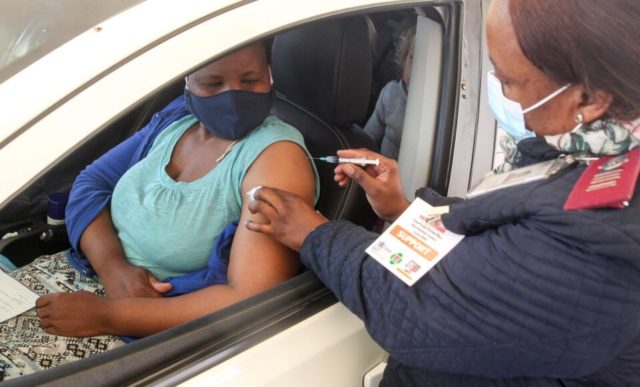While the health-care sector was scrambling to meet the demand at the start of the vaccination roll-out against the Covid-19 pandemic, it is now faced with a challenge of getting people vaccinated.
WHILE the health-care sector was scrambling to meet the demand at the start of the vaccination roll-out against the Covid-19 pandemic, it is now faced with a challenge of getting people vaccinated.
The South African Association of Freight Forwarders’ conference this week heard that the country’s economic recovery plan depended on the success of the roll-out of vaccines.
The head of the Health Working Group at Business Unity South Africa (Busa), Dr Starvos Nicolaou, said the country had to vaccinate at least 28 million people by December before the fourth wave hits.
“At the start of the pandemic we had an under-supply of vaccines and a huge demand. But now that we have an oversupply and 3,000 accredited vaccination sites across the country, we have seen less demand from the public. We need to ramp up the demand.
“The damage of the anticipated fourth wave will depend on the next three months or we will revert to further lockdown restrictions. We need to vaccinate to break the chain of transmissions,” said Nicolaou.
He said that, in terms of vaccinations, Africa lagged far behind other continents, yet it was heavily reliant on global trade.
“Africa has to develop its own vaccination capabilities soon as the continent has the worst diseases. By 2030 we need to at least produce 60 % of vaccine requirements.”
The conference also heard that the pandemic led to an “unprecedented” collaboration between the public and private sectors.
Supply chain solutions engineer at Bidvest International Logistics, Willem Bekker said the complexities and challenges presented by the pandemic required unique solutions.
Chief among those was the construction of an IT infrastructure to handle crucial data and monitor the supply chain.
“The scale was enormous. We had to address various aspects from storage of vaccines to distribution, to security issues.
“But as we were focusing on the first phase which involved the vaccination of health-care workers, we needed to work closely with all those involved. We were building the aircraft while it was flying,” Bekker said.
Busa chief executive Cas Coovadia said the differences between the public and private sectors needed to be put aside for national interest.
“We have established a working committee made up of 40 people from various sectors, who work pro bono to assist the government.
“In a crisis situation business and government can work together in the national interest. We need to stay the course,” said Coovadia.
However, deputy director-general for National Health Insurance in the national Health Department, Dr Nicholas Crisp warned that the work was “not anywhere near finished” as there were other challenges.
“With the virus mutations changing, we don’t have our own experience to draw on to predict how the virus will unfold. Although we can expect changes, we do not know who will be more vulnerable. We need to vaccinate more people,” said Crisp.








